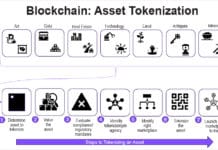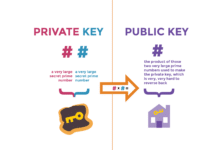By enabling users to rapidly and easily test models online for free, ModelScope was created to make the construction of AI models easier and more economical. By improving existing models that may be run on Alibaba Cloud, other cloud computing platforms, or locally, programmers and academics can create new AI applications.
Alibaba Cloud, a division of the Chinese technology behemoth Alibaba Group, is the company’s intelligence and technology backbone. Alibaba Cloud, which was founded in 2009, seeks to provide its clients with a comprehensive selection of cloud computing services, including big data analytics, a machine learning platform, Internet of Things (IoT) services, network virtualization, storage, administration, and elastic computing. The business debuted ModelScope, an open source Model-as-a-Service (MaaS) platform with hundreds of AI models, including sizable pre-trained models for worldwide developers and academics, as part of its annual Apsara Conference.
Cloud computing has led to a fundamental improvement in the way computer resources are created, managed, and put to use in the commercial sector. It has also changed the paradigm of software development and accelerated the integration of the cloud and endpoint terminals. Alibaba Cloud has tried to upgrade their cloud-based services and tools to become serverless and more intelligent as more users start utilising cloud-based services, in order to reduce the effort necessary for enterprises to adopt new technology and maximise their prospects in the cloud era. The leading cloud provider in the world improved its integrated data analytics and intelligent computing platform and presented a number of serverless database solutions during its flagship conference to help clients better achieve business innovation through cloud technologies.
The ModelScope platform has recently added more than 300 AI models that are ready for deployment. These models were developed over a five-year period by the Alibaba DAMO Academy, an international research initiative. These models address a variety of topics, such as computer vision, natural language processing, and audio processing. T he website showcases more than 150 modern models who are acknowledged globally as the greatest in their industries for a certain task. Additionally, the platform includes sizable pre-trained models created solely by Alibaba, like Tongyi (which can transform text into graphics with five billion parameters) and One-For-All (a model with six billion parameters that excels at cross-modal tasks like captioning photos and answering visual questions). The open source platform has also seen numerous model additions from independent developers.
Thanks to recent technology advancements in serverless software development, Alibaba Cloud is making its core cloud products serverless. This will allow customers to concentrate on product deployment and development without worrying about managing servers and infrastructure. The focus of Alibaba Cloud’s most recent solutions is on providing consumers with on-demand access to computing power. These products include the cloud-native databases PolarDB, ApsaraDB for Relational Database Service, and the cloud-native data warehouse AnalyticDB (ADB) (RDS). Using the serverless technology of Alibaba Cloud, customers may take advantage of automatic scaling with exceptional flexibility based on actual workloads and a pay-as-you-go billing strategy to reduce expenses. Demands may automatically and elastically scale in as little as one second.
A self-developed comprehensive data analytics and intelligent computing platform called ODPS (Open Data Platform and Services), which Alibaba Cloud recently updated, offers organisations a range of data processing and analytics services. With its ability to manage both online and offline data simultaneously in a single system, the platform enables businesses with significant workloads to access analytics for more efficient and cost-effective corporate decision-making. With a demonstration of its applications on the Wuying Cloudbook, Alibaba Cloud also announced the debut of the Wuying Architecture in an effort to encourage burden sharing between the cloud and local hardware. The Cloudbook’s customised architecture allows users to access cloudless computing power more quickly and securely, promoting collaboration and flexibility at work.













































































